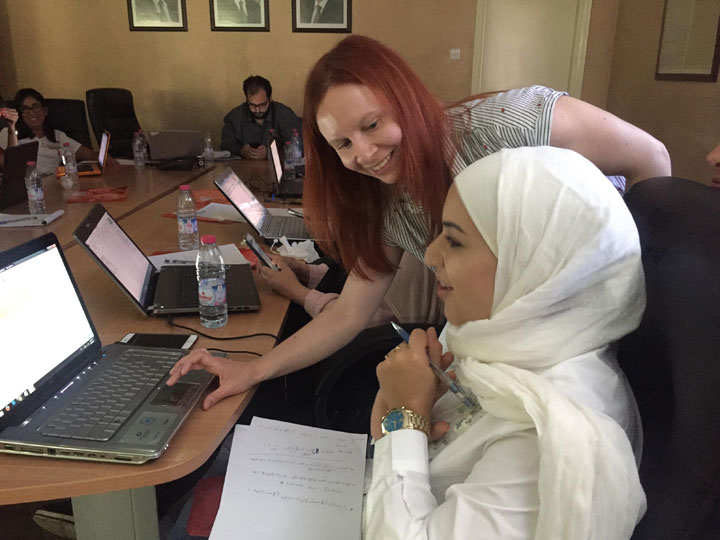Global News is a media partner with Journalists for Human Rights and, as part of that partnership, is proud to provide a platform for updates on JHR programs.

Some things in journalism are universal, like wheedling with an editor for more time to work on a special project, finding a great new source for information or fighting secretive government departments for data.
That’s what I learned on my second trip to Jordan with Journalists for Human Rights. In July, I travelled to the country to work with local journalists and teach data journalism skills.
I spent most of my time in the newsroom at Al Ghad, the largest independent newspaper in Jordan. There, I met some very impressive investigative reporters who were eager to expand their repertoire of skills, as well as some young keeners who were happy to have the opportunity to learn something new.
The students picked up everything very fast. Later, over many cups of strong coffee, we discussed their own story ideas. I was impressed by their ambition: some wanted to tackle issues of social justice or examine the ongoing Syrian refugee crisis, while others were interested in consumer safety. Everyone was looking for data to make their stories stronger.
- Epstein files fallout: People who’ve resigned or been fired after DOJ release
- Inuit look to Greenland’s social model as Canada pursues military buildup in Arctic
- White House says tariff rollback reports ‘speculation’ unless announced
- 2 ICE officers face probe into whether they lied about Minneapolis shooting
Although we face many of the same problems in our day-to-day work, Jordanian journalists deal with an interesting contradiction: everyone there agrees on the importance of data to give their reporting weight and credibility, and yet there are relatively few official sources available to local journalists.

Get breaking National news
For this reason, Jordanian reporters want to learn how to better use data in their stories. However, while we in Canada might use Freedom of Information requests to access official statistics, in Jordan this information is often obtained secretly through sources or cobbled together by other means. Although there is a local Freedom of Information law, none of the journalists I met had ever successfully used it to obtain government information.
Given this difficulty, I spent much of my trip trying to figure out why everyone placed such value on data journalism skills. I think it comes down to this: in a country where the government will often deny or attack a story’s credibility, having data to back up your conclusions is important.
This information is even more important when journalists occasionally spend time in prison or get calls from security agents about what they write.
I hope that, in some small way, I have helped these journalists with their future reporting because they have big ideas and big plans for their stories. I was impressed at their fearlessness and dedication in a very difficult working environment and have every confidence that they will get their stories done.
But I also hope that official data — and government information in general — is made more available in Jordan so that journalists can more freely hold their government to account.
Global News’ Leslie Young was in Jordan as an expert media trainer for Journalists for Human Rights in July.









Comments
Want to discuss? Please read our Commenting Policy first.